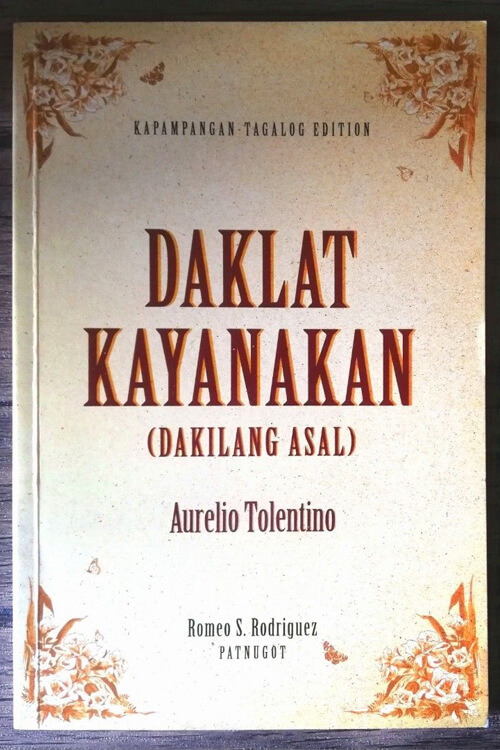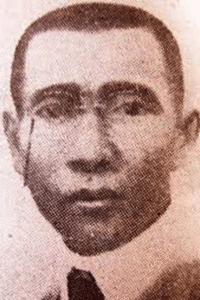
Dakilang Asal
O kabinataang bagong sumisibol,itong abang lagda sa iyo’y patunkol. Pakatandaan mo itong m~ga hatol na dan~gal at buhay n~g lahat n~g dunong.
Ang pagpipitaga’t pakikipagkapua ay siyang sagisag n~g pagka-dakila; kapág sa sinuman ito ay nawala, iyan ay di dapat, humarap sa madla.
Di sukat ang ganda, di sukat ang yaman, di sukat ang dunong at lahat n~g inam; kapag ang sagisag na aking tinuran ay siyang nawala, ang lahat ay kulang.
Ang pagkamabaít, ang pagka-mahinhin, ang pagka-matapat at anyong butihin ay siyang palamuting sa tuina’y dadalhin, ang iyong ugali upang magluningning.
Sapul pa n~g ikaw ay batang maliit may tungkulin ka n~g lubhang mahihigpit, gaya n~g huag bigyan n~g munting ligalig ang kawawang inang sa iyo’y ninibig.
Ikaw ay lumaki at lumaki naman ang iyong tungkuling akin n~g tinuran: n~g una’y ang iyong mundo ay kandun~gan n~g inang malugod, n~gayon ay ang bayan.
Read or download Book
Aurelio Tolentino
Aurelio Tolentino y Valenzuela (October 15, 1869 – July 5, 1915) was a Filipino playwright, poet, journalist, and revolutionary. His works at the turn of the 20th century depicted his desire for Philippine independence from its colonizers. He was arrested twice, first by the Spaniards and later by American forces. He wrote and directed the anti-imperialist play Kahapon, Ngayon at Bukas (Yesterday, Today, and Tomorrow), which led to his arrest in 1903.
Early life and career
Tolentino was born in Santo Cristo, Guagua, Pampanga. He was the third and youngest child of Leonardo Tolentino and Patrona Valenzuela. Tolentino received his Bachelor of Arts degree from Colegio de San Juan de Letran and read law at the University of Santo Tomas.
Later, Aurelio Tolentino moved to Tondo, Manila, where he became a court desk official.
Later career
In Tondo, he met Andres Bonifacio, one of the founders of Katipunan and eventual leader of the Philippine revolution against Spain. Tolentino would eventually become an early member of the Katipunan. He accompanied Bonifacio in their search for a secret headquarters in the mountains of Morong province (now Rizal) in preparation for the start of the Philippine Revolution.
Tolentino was arrested shortly after the start of the war and detained for nine months. After his release, he took part in Gen. Vicente Lukban’s revolutionary campaigns. He continued to support the cause for Philippine sovereignty and became one of the signatories of the Declaration of Independence in Kawit, Cavite, in 1898.






